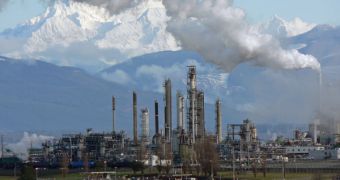The Environmental Protection Agency (EPA) announced on Friday that it was seeking to revise regulations set in place last June, which forced refineries to be very careful about the amounts of emissions they pumped into the atmosphere. Following the lobby of several major oil associations, EPA seeks to give companies another 18 months to install anti-pollution software, as well as to eliminate the flow rate limit, that the industry opposed.
Under the soon-to-be-former regulation, oil refineries were required to install emission-trapping equipment if they exceeded their allotted amount of emitted greenhouse gases in the atmosphere. But industry groups, including the American Petroleum Institute, the National Petrochemical and Refiners Association, and the Western States Petroleum Association, denounced the measure and said that they had very little time to prepare, as the deadline was just 12 months away, and they needed 18 to complete the task.
"Additional time should be allowed to ensure that vendors have sufficient time to provide monitoring devices," they said, justifying why they would continue polluting for another half a year. EPA has not yet approved of this request, but it said that it was looking for public consultation on the matter.
The federal agency is also trying to remove the flow rate limits it had previously set in place, which allowed refineries to only burn 250,000 standard cubic feet of gas per day. Now, following millions of dollars that the companies invested in lobbyists, EPA seeks to remove these limits altogether, saying that this measure will (surprise) reduce pollution overall, as it will discourage refineries to build more flaring towers.
Over the next 45 days, EPA will be accepting inputs from the general public, so everyone who opposes this measure can forward their complaints directly to the agency. The flow limit removal will also apply to burning sulfur, EPA representatives said.

 14 DAY TRIAL //
14 DAY TRIAL //